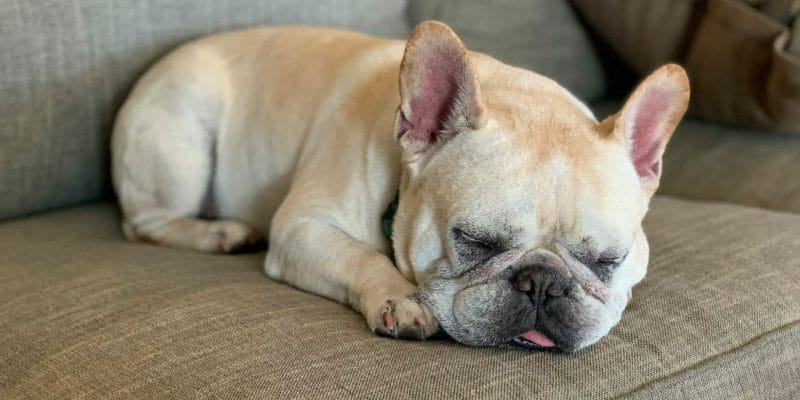We just completed a fantastic webinar with James Nestor, author of Breath: The New Science of a Lost Art. During the lecture he discussed the effects of oropharyngeal exercises on snoring. Nestor noted that other than dogs intentionally bred to be “brachiocephalic” (like my cute Frenchie in the photo) humans are the only other mammals whose faces are flattening and whose nasal breathing is getting worse by the decade! If you have trouble breathing at night, or mouth breathing in general, its possible that these exercises could help you!
Great, so what do I need to Do?
According to an article published in Chest by Leto and colleagues* in 2015, these exercises can absolutely help with snoring and likely mild sleep apnea. Here’s what you need to do (repeat each of the first 4 exercises 20 times):
- Push the tip of your tongue against the hard palate and slide the tongue backwards
- Suck the tongue upward against the palate pressing the entire tongue against the roof of the mouth
- Force the back of the tongue against the floor of the mouth while keeping the tip of the tongue in contact with the inferior (lower) incisive (front) teeth
- Elevate your soft palate and uvula (the punching bag at the back of the mouth
- Stick your finger in your mouth and press against the inside of your cheek; try to resist the force of your finger with your cheek muscle (10 times each side)
- During normal eating/feeding: try to alternate chewing on both sides of the mouth, using your tongue to push the food back without pursing your lips or squeezing your cheeks
Pretty soon it’ll me much quieter at night for the ones you love . . . Good Luck!!
What Are My Other Options?
If these exercises don’t work for you, other therapies are available. Check out our information on septal or turbinate surgery. We would also recommend following up with a rhinologist who can address your concerns and provide information on a variety of medications and therapies which may be helpful as well.
* Leto et al. Effects of oropharyngeal exercises on snoring: a randomized trial. Chest. 2015;148:683-691. PMID: 2590418

